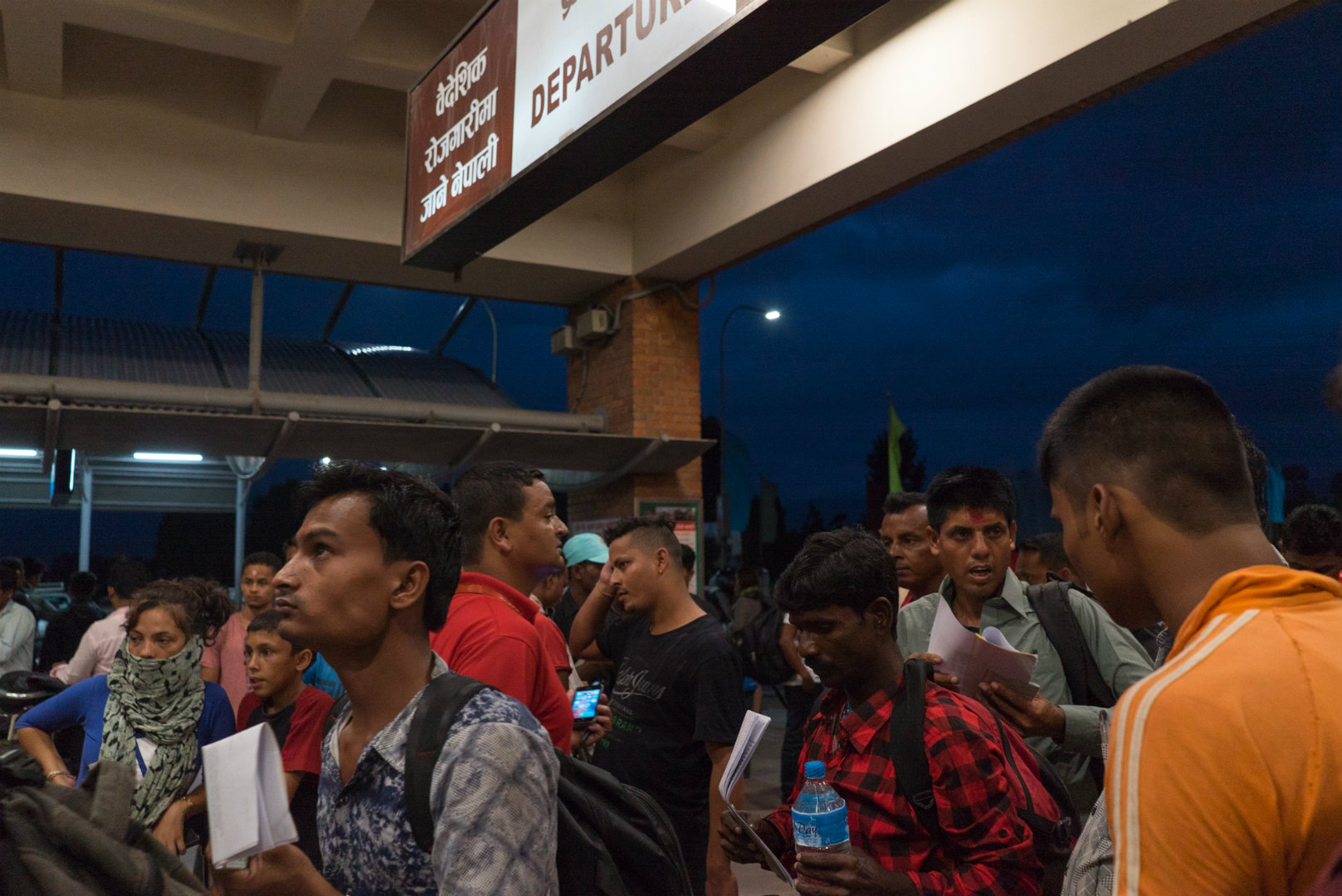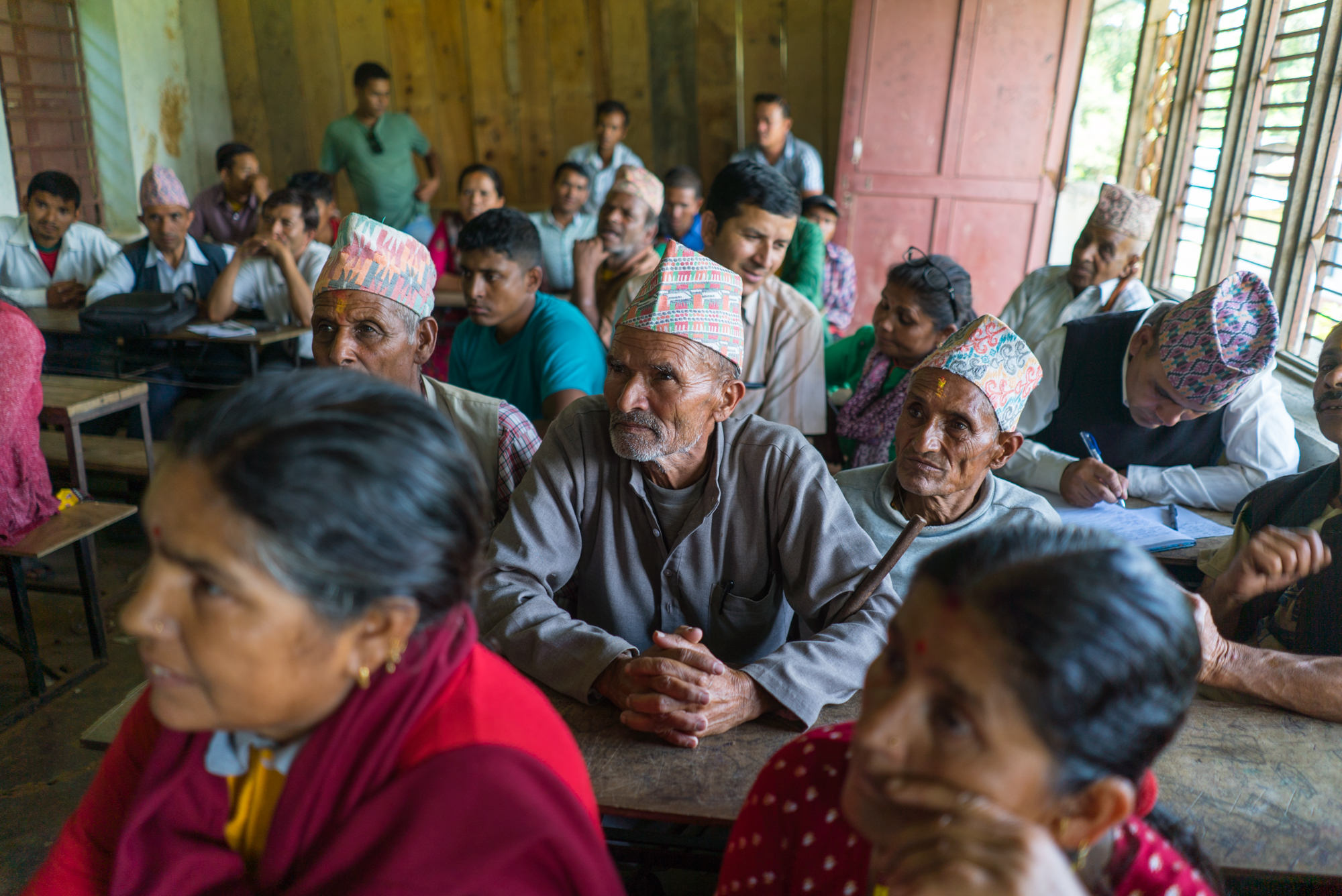NEWS
August 29, 2017

IN BRIEF
1500 young people migrate from Nepal on a daily basis seeking employment totaling 6 million to 110 countries over the last 20 years. Prakash Bhattarai, Vivek Adhikari, Reshma Basnet According to a macro financial report by the Nepal Rastra Bank, 56% of households in Nepal rely on remittances from foreign labor earnings. Between 2009 and 2015, the Department of Foreign Employment issued 2 723 587 labor permits, accounting for more than 25% of the economically active population of Nepal. In the absence of suitable employment opportunities and a growing population, the struggle to make ends meet has led to a significant [...]
SHARE
1500 young people migrate from Nepal on a daily basis seeking employment totaling 6 million to 110 countries over the last 20 years.
 Prakash Bhattarai, Vivek Adhikari, Reshma Basnet
Prakash Bhattarai, Vivek Adhikari, Reshma Basnet
According to a macro financial report by the Nepal Rastra Bank, 56% of households in Nepal rely on remittances from foreign labor earnings. Between 2009 and 2015, the Department of Foreign Employment issued 2 723 587 labor permits, accounting for more than 25% of the economically active population of Nepal. In the absence of suitable employment opportunities and a growing population, the struggle to make ends meet has led to a significant number of people choosing foreign employment as a primary means of income.
The outflow of Nepali in such large numbers has proven to be beneficial to the national economy, as remittances contribute significantly to the GDP of the country. Alongside investment, trade, agriculture, water, and tourism, remittance has established itself as one of the significant pillars of economic income totaling 29.6% of the total GDP in 2016.
Despite the significant financial contribution of labor migration, many face significant challenges in their new countries. Cases of fraud, abuse, exploitation, trafficking and even death amongst labor migrants are frequently in the news, even though the majority go unreported. According to Foreign Employment Promotion Board (FEB), a total of 1002 cases of migrant worker deaths were reported in 2014/15 alone and 4,322 since 2008/09.
While the government has attempted to regulate and facilitate the process of foreign employment through policy development and amendment, lack of attention to implementation has significantly hindered improvements and thus failed to eliminate the threats experienced by labor migrants in the country, as well as in the country of destination.
Proper governance of labor migration is essential to improve the status of our labor migrants and ensure their rights. In January 2017 the Centre for Social Change (CSC), a social think-tank advocating for the rights of migrant workers and their families, developed an initiative called Migration Watch through media monitoring. CSC realizes the importance of improved migration governance and advocates on the issue through articles, blogs, and publications based on media monitoring to ensure that the rights of the labor migrants are not violated. In order to do this, CSC tracks news from 10 different newspapers and online portals including: Kantipur, The Republica, Annapurna post, Online Khabar, The Himalayan Times, Setopati, The Rising Nepal, Nagarik Dainik, Gorkhapatra, and The Kathmandu Post for news on a number of issues including: state services, migrant workers, functions and efficiencies government, migration, policies and treaties, recruitment, fraud, women, human trafficking, migrant worker challenges including deaths, reintegration, remittance, social, economic and political costs of labor migration amongst others. This enables CSC to report on labor migration issues and serve as a key resource for those that are attempting to assist those that leave home to find a better life for their families.
Prakash Bhattarai is an Accountapreneur and Chairperson of Center for Social Change in Nepal.
